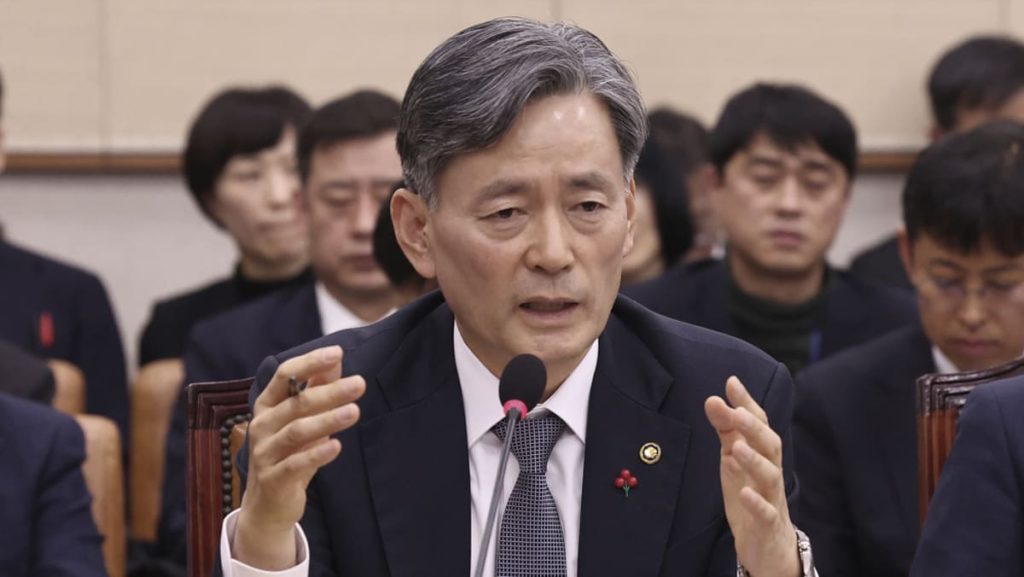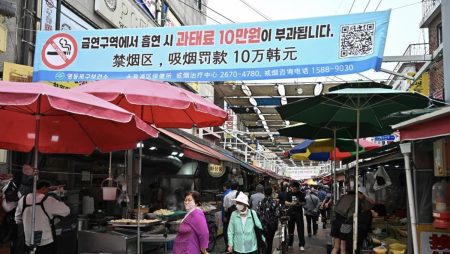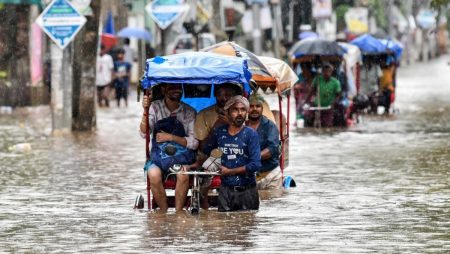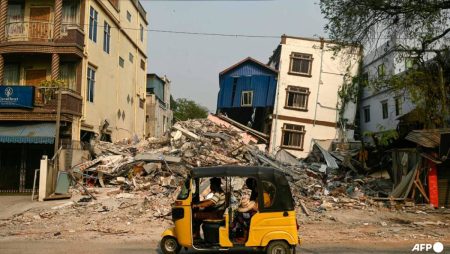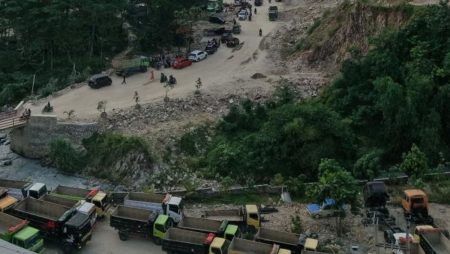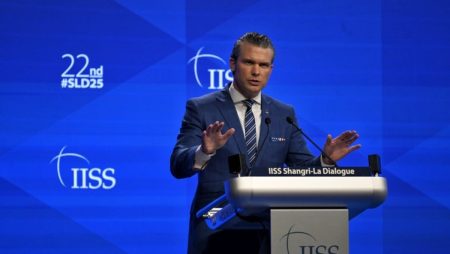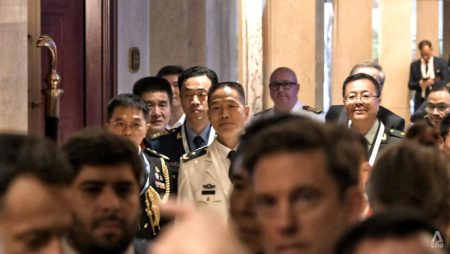South Korea finds itself in the throes of a profound political crisis following President Yoon Suk-yeol’s abrupt declaration of martial law, a move that has sparked widespread condemnation and calls for his impeachment. The main opposition Democratic Party (DP) has initiated impeachment proceedings, slated for a parliamentary vote on Saturday. This follows an initial failed attempt last Saturday, hampered by a boycott from the majority of Yoon’s own People Power Party (PPP). However, the growing dissent within the PPP, with some members now openly supporting impeachment, signals a significant shift in the political landscape and increases the likelihood of the motion passing this time. The atmosphere is charged with uncertainty as the nation grapples with the implications of this unprecedented constitutional crisis.
Yoon’s declaration of martial law, a drastic measure typically reserved for times of war or extreme national emergency, sent shockwaves through the country and beyond. The move was met with swift resistance, with lawmakers, including some from the PPP, defying security cordons to convene and demand the immediate revocation of martial law. Yoon ultimately complied, rescinding the order hours later. However, the damage was done. The president’s actions raised serious questions about his judgment and leadership, further eroding public trust and exacerbating the political turmoil. The incident has exposed deep fissures within the ruling party and highlighted the fragility of South Korea’s democratic institutions.
The president’s actions have not only sparked political upheaval but have also drawn legal scrutiny. Yoon is currently under criminal investigation for insurrection charges, a serious allegation that further complicates his already precarious position. While he has issued a public apology, it has done little to quell the growing demands for his resignation, even from within his own party. Yoon’s subsequent absence from public view, following his televised apology, has only fueled speculation and further destabilized the situation. The lack of clear communication from the presidential office regarding who is effectively in charge of the country has added to the uncertainty and anxiety surrounding the leadership vacuum.
Adding to the complexity of the situation are revelations about the military’s role in the attempted enforcement of martial law. Testimony before a parliamentary committee has alleged that Yoon ordered the commander of the Army Special Warfare Command to deploy troops to parliament, forcibly remove lawmakers, and effectively shut down the legislative process. Similar accusations have been leveled against Yoon’s then-defense minister. These allegations, if proven, paint a disturbing picture of a president willing to utilize military force against the very institutions he is sworn to protect. This raises grave concerns about the potential erosion of democratic norms and the dangerous precedent it sets for future leaders.
The political turmoil has not been confined to the halls of power. The unfolding crisis has spilled over into the streets, with widespread protests and demonstrations erupting across the country. Labor unions, including powerful organizations representing metal workers and financial institutions, have joined the chorus of dissent, further escalating the pressure on the government. The growing unrest underscores the widespread dissatisfaction with Yoon’s leadership and the deep anxieties about the future direction of the country. The scale and intensity of the protests signal the potential for further disruption and instability if the political crisis remains unresolved.
As South Korea grapples with this unprecedented leadership crisis, the upcoming impeachment vote looms large. The outcome will have profound implications for the country’s political future. If the impeachment motion succeeds, it will mark a historic moment in South Korea’s democratic journey, underscoring the power of accountability and the resilience of its institutions. However, the path forward remains uncertain, fraught with potential pitfalls and challenges. The impeachment process itself could further polarize the nation, exacerbating existing divisions and potentially leading to prolonged political instability. Regardless of the outcome, the events of recent days have left an indelible mark on South Korea’s political landscape, raising critical questions about the future of its democracy.




